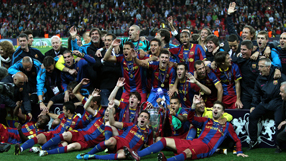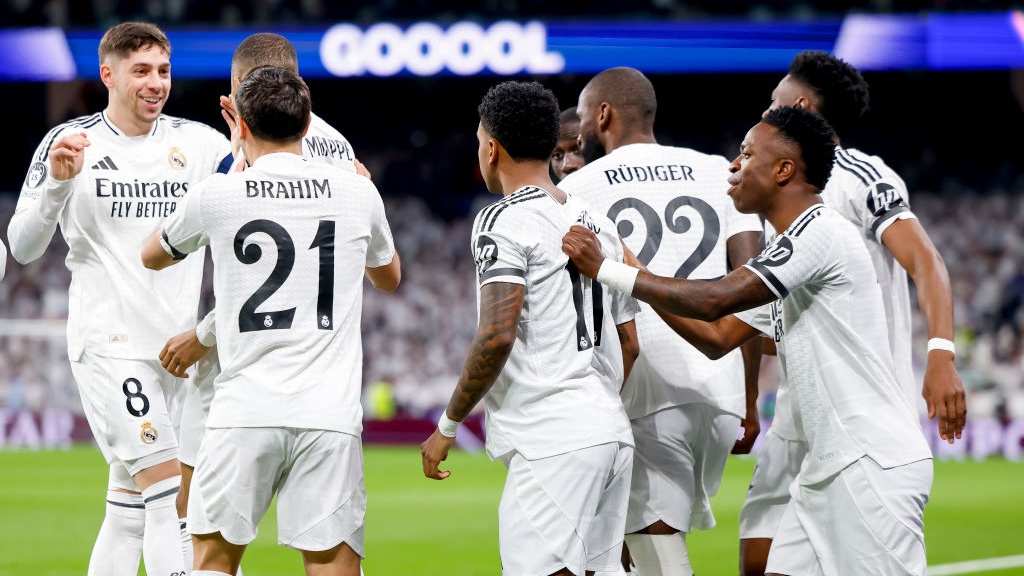Barca take their place among all-time greats
LONDON - Pep Guardiola may deny all comparisons with the past but the breathtaking display of his Barcelona prodigies in the Champions League Final has confirmed the elevation of his team into the soccer stratosphere.

Their 3-1 demolition of English Premier League champions Manchester United at Wembley, of all places, was a masterful demonstration of football played at the most sublime level.
Barcelona coach Guardiola, collecting his second Champions League crown in three years, has produced a team of talents who can now stand comparison with those wonder sides of the past - Real Madrid, Ajax Amsterdam and AC Milan.
In United, Barcelona had opponents who are hardly nobodies. This was their third Champions League final in four years, they have just won the Premier League by nine points and they boast in Wayne Rooney one of the best players in the world.
Yet United, in a Wembley stadium with 'home' fans far outnumbering Catalan followers, could manage just 37 percent possession, muster only one shot on goal and not earn a single corner, so much did they fall under the spell of Lionel Messi, Xavi, Andres Iniesta and their supporting cast.
It was the most comprehensively magical display in a European final since AC Milan trounced Barcelona 4-0 17 years ago in Athens.
When Barca play the way they did on Saturday it is hard to imagine any team surviving their onslaught. The close control in tight situations, swift inter-passing movement and clever working of spaces to create chances are simply devastating.
They force opposition fans to look on with jaws dropped in admiration of football played at a level of skill and sophistication one would not even dare dream about.
Get FourFourTwo Newsletter
The best features, fun and footballing quizzes, straight to your inbox every week.
Beaten Manchester United manager Sir Alex Ferguson acknowledged their pre-eminence. "In my time as manager I'd say they are the best team I've faced." he said.
"Nobody's given us a hiding like that but they deserve it because they play the right way and they enjoy their football."
Barcelona certainly play with a joy which echoes the truly great teams of the past.
SIMILAR VERVE
The Real Madrid side which won the first five editions of the European Cup between 1956 and 1960, culminating in a 7-3 thrashing of Eintracht Frankfurt in the 1960 final, played with similar verve.
Ferenc Puskas scored four and Alfredo Di Stefano three that day in a display of attacking flair which set a benchmark for European club football.
Ajax, with Johan Cruyff in his pomp and Johan Neeskens in close support, were the next great team to enchant neutral fans with three consecutive European titles in the early 1970s.
Their "Total Football", which saw players constantly switching position and mesmerising opponents, was a spectacular tactical innovation which changed the game forever.
The AC Milan side which won the European Cup in 1989 and 1990 is probably the only team since to inspire the same kind of awe. That side, built around the Dutch trio of Marco van Basten, Ruud Gullit and Frank Rijkaard, matched skill and athleticism to produce classic entertainment.
Barcelona have still to amass the titles of these illustrious predecessors. Competition is undoubtedly t
